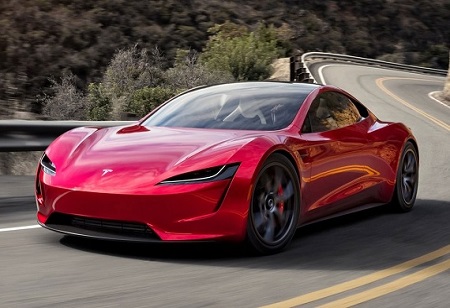
Tesla Advances Its Full Self-Driving Technology Rollout in China

 Tesla plans to seek registration of its 'Full Self-Driving' software with Chinese authorities before its anticipated launch this year, according to individuals familiar with the matter. Additionally, the US electric vehicle company is exploring the option of offering the software as a monthly subscription to Chinese customers.
Tesla plans to seek registration of its 'Full Self-Driving' software with Chinese authorities before its anticipated launch this year, according to individuals familiar with the matter. Additionally, the US electric vehicle company is exploring the option of offering the software as a monthly subscription to Chinese customers.
Upon successfully registering the software with China's Ministry of Industry and Information Technology, Tesla will conduct internal testing of its Full Self-Driving (FSD) system by having its employees drive on public roads in China. The upgraded FSD feature will then be delivered to Chinese users in the upcoming months. Presently, the company provides two less advanced versions of its Autopilot driver assistance system in China.
Tesla currently offers owners of its vehicles access to FSD for a one-time 64,000 yuan ($8,828.32) fee. However, Tesla may also offer the service for a monthly fee equivalent to about $98 in the future, they said. FSD sales in China would open a new source of revenue for the EV maker, which has seen its sales volumes there fall by 7.6% in the first four months of the year due to increased discounting and competition by Chinese EV makers.
Tesla's push to roll out FSD in China "pressure other EV startups to accelerate their research and development", said Yale Zhang, managing director at Shanghai-based consultancy Automotive Foresight. The previously unreported schedule for the rollout comes as Tesla is doubling down on efforts to power the global development of its self-driving system with data collected and processed in China, part of a strategic shift by CEO Elon Musk.
The automaker is in the process of introducing version 12 of FSD to China, which is the latest iteration of the software. Musk has expressed that this version instilled confidence in Tesla's ability to provide fully autonomous driving systems. Tesla will be among the group of at least 10 automakers and suppliers, including Huawei and Xpeng, venturing into this realm. While Tesla will charge for FSD, Li Auto and Xpeng have included similar driving systems at no extra cost on high-end variants of their models. On the other hand, some automakers like Nio have offered buyers a trial period of the system without any charge.
Tesla's AI model for autonomous driving referred to as an end-to-end neural network, diverges from traditional rule-based algorithms typically employed in training self-driving systems. Huawei and Xpeng have also announced their endeavors in developing end-to-end AI models for autonomous driving, inspired by Tesla's approach. Tesla utilizes a supercomputer named Dojo to train its FSD system, employing video clips sourced from millions of Tesla EVs. This extensive network of connected vehicles, constituting the world's largest fleet, combined with its data processing capabilities, confers a significant advantage over competitors, as noted by Yin.

